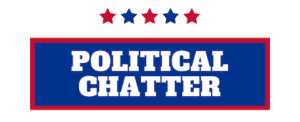Why don’t they just allow free speech in general?
In an unexpected shift, YouTube recently made a significant alteration to their terms of service. The change, favorably received by Republicans, now permits questioning the outcome of the 2020 presidential election on the platform.
For the past two and a half years, raising inquiries or expressing certain opinions about the mysterious outcome of the 2020 election could result in censorship or a ban from the platform. The reason being, these discussions were deemed as violating the platform’s policy against misinformation. The policy was seen as being partisan, with Republicans feeling targeted as only Democrats appeared to have the leeway to question the security and accuracy of electronic voting machines.
Now, however, YouTube is opening up the discourse to everyone, much to the chagrin of mainstream media. Outlets like the Associated Press and Axios have expressed their concerns, with the latter outlet claiming the “scoop” on this news. According to them, YouTube’s change essentially permits U.S. election denialism, allowing users to share content that claims, falsely or otherwise, the legitimacy of past presidential elections.
What was even more surprising about this shift was how it was revealed. Rather than the revelation coming from diligent journalism or inside sources, the news broke simply because YouTube announced it in a blog post, as is standard practice for updates about their terms of service.
As to be expected, CNN expressed strong dissent about this change, arguing it could further blur the line between fact and fiction, especially regarding U.S. elections. But this new policy allows users to ask questions such as: “How did Joe Biden receive more votes than any president in history?” or “Why did certain districts vote for him for president, but then for Republicans down-ballot?”
An important part of this discourse centers around the responsibility of the platform. Is it really a violation of free speech to disallow users from sharing information deemed to be demonstrably false? While opinions vary, what’s clear is that this change in YouTube’s policy is a significant shift in the handling of political discourse online.
Despite the controversy, this move by YouTube is in many ways a restoration of the age-old American tradition of questioning election results, and it brings to light the fact that allegations of election rigging, on either side of the political divide, are not a recent phenomenon.
However, it’s crucial to be aware of the potential pitfalls that could arise from this policy change. Given the proliferation of misinformation and conspiracy theories, users must remember to critically evaluate the content they consume and share online.
The new policy certainly signals a potential shift in the cultural narrative and could perhaps encourage more open, although contentious, political debates online. As the discourse evolves, remember to engage responsibly and respectfully with one another, regardless of political affiliations.
